After my Afghan adventure it was time to see the Pamirs from the Tajikistan side, especially the legendary Lake Zorkul, source of a major tributary of the Oxus and the largest, highest and remotest of all the Pamir lakes. The maps in Curzon’s and Younghusband’s saddlebags showed it jingoistically as ‘Lake Victoria’.
No real road goes anywhere near the lake, and apart from local shepherds only a handful of people set eyes on it each year. Amazingly I found a 4x4 driver willing to try the route, and a fellow traveller to share the cost.
Camping beside the deep blue lake, 13,500 feet above sea level, surrounded by utter wilderness with the entire Wakhan range forming a southern backdrop, was a highlight of a different kind to my month in Afghanistan. With no helping horsemen I felt much more vulnerable – and rightly so, as it turned out, because next day the vehicle got hopelessly stuck in a bog and we had to call on a shepherd family to help dig us out. Later, on the Afghan border, some Tajik military guards invited me to share a bath fed by a bubbling hot spring – their only perk in what must surely be a punishment posting.
Scrubbed up and squeaky-clean, I arrived in the regional capital Murghab to find Independence Day celebrations in full swing. Actually ‘regional capital’ is a bit misleading – think mud-brick compounds and recycled lorry containers – but its people were among the friendliest of all I’d met so far. In the water-meadows the atmosphere was hectic, with traditional singing and dancing, camel rides, a procession of floats, speeches, toasts and lots of feasting in tents.
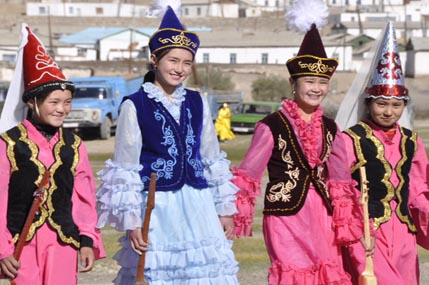
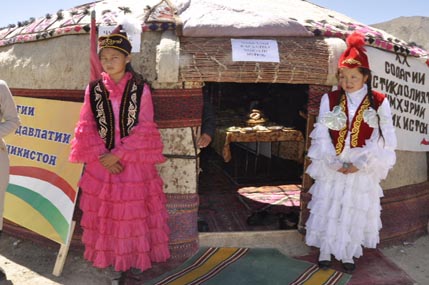
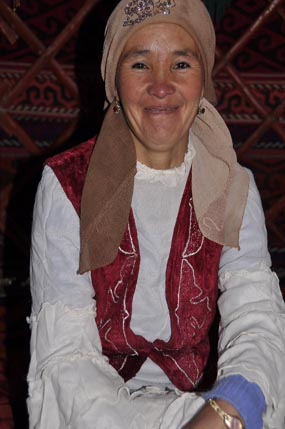
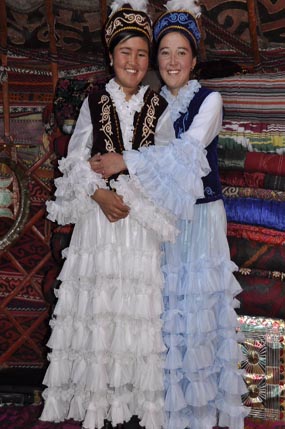
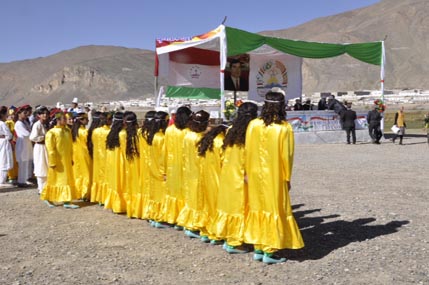
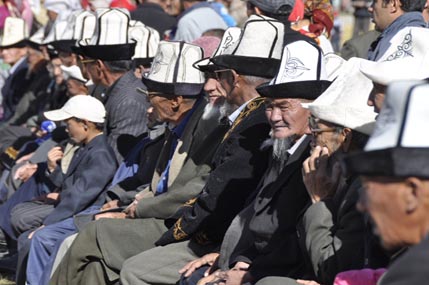
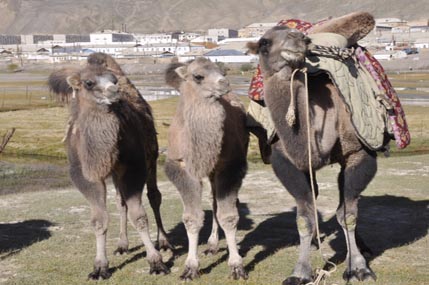
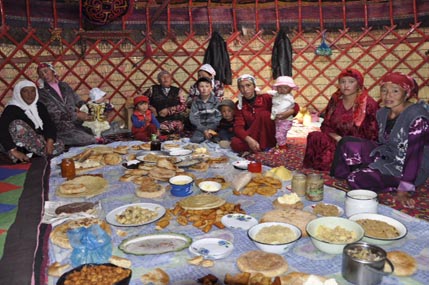
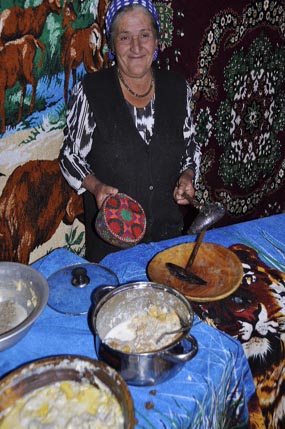
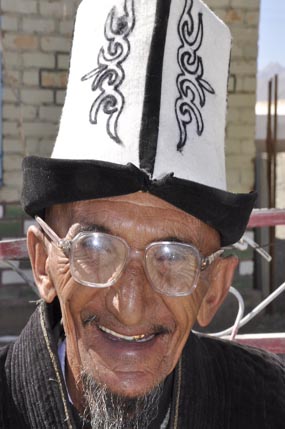
Full of Murghab goodwill, I crossed into Kyrgyzstan and made a brief diversion to the city of Osh, where nearly 20 years ago I found a thriving silk industry. Imagine my disappointment to discover the last spinners and weavers were given their notice in 2003. The silk mill is now a shopping mall. More seriously, in 2010 Osh suffered a week of terrible violence between its Kyrgyz and Uzbek inhabitants. The bazaar has resurfaced among the burnt-out buildings, but it’s easy to see the resentment that must be simmering on both sides.
Summer was now turning to autumn, and I crossed the final pass to China in snow. I was now in Xinjiang, China’s westernmost region and (nominally at least) the land of the Uyghurs. Compared with their Tajik and Kyrgyz cousins, I’m afraid Uyghurs aren’t the snappiest of dressers. Shabby grey jackets for men and drab skirts and blouses for women are the favoured clothing. Women’s veils are especially strange: they look for all the world like a brown towel thrown over the head.
Sadly camels no longer feature in Kashgar’s weekly livestock market, but it’s still a rollicking affair, with plenty of baa-ing, moo-ing and shouting, and animals changing hands at lightning speed. Purchases are carted off by motorbike.
I can’t believe it’s 24 years since I was last here in Kashgar. Then as now, I turned up filthy and exhausted at the old Russian consulate – now a guesthouse – where the notorious Nikolai Petrovsky held court during the ‘Great Game’. A mile to the north-east, British consul George Macartney sent dogged dispatches to London about Cossack movements from 1890 till the First World War. In 1987 I found Macartney’s consulate much as he left it. I wonder if it will still be there?
Other updates
